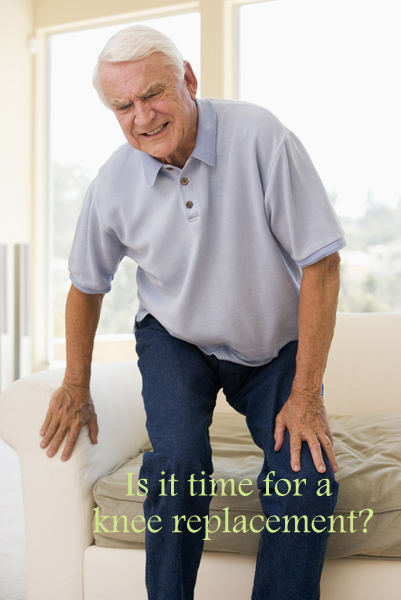
Although you might not realize it, your knees are needed for just about every activity you do on a daily basis. So when something goes wrong with one or both of your knees, you’re sure to notice. That’s why New Orleans orthopedic surgeon Dr. Richard Meyer is sharing some symptoms that could be a sign that a knee replacement is needed.
The knee is actually the largest joint in the body, and is made up of the femur, (which is the lower end of the thighbone); the tibia (which is the upper end of the shinbone) and the kneecap. A smooth substance called articular cartilage covers the ends of these three bones where they meet to protect them and promote easy movement.
The most common cause of chronic knee pain is arthritis and there are three types of arthritis that are most responsible for the pain:
- Osteoarthritis. This occurs when the cartilage that cushions the bones of the knee softens and wears away, causing the bones to rub against one another, resulting in knee pain and stiffness. This type of arthritis is most often seen in people over age 50.
- Rheumatoid arthritis. This is the most common form of inflammatory arthritis, which occurs when the membrane that surrounds the joint becomes swollen. This lingering inflammation can cause damage to the cartilage, eventually resulting in cartilage loss, pain, and stiffness.
- Post-traumatic arthritis. This type of arthritis typically appears after a serious knee injury. Fractures of the bones surrounding the knee or tears of the knee ligaments may damage the articular cartilage over time, causing knee pain and limited knee function.
Ask yourself: Could you benefit from total knee replacement?
If you have one or more of these symptoms, a knee replacement could be the answer to your problems:
- Serious knee pain and/or stiffness that limits your everyday activities, including walking, climbing stairs, and getting in and out of chairs and makes it difficult for you to walk more than a few blocks without pain;
- Moderate or severe knee pain while resting;
- Chronic knee inflammation that does not improve with rest or medicine;
- Knee deformity causing a bowing in or out of your knee.
- Failure to improve with other treatments such as medications, cortisone injections, lubricating injections, physical therapy, or other surgeries.
If you think you may be a candidate for knee replacement surgery, contact the office of New Orleans orthopedic surgeon Dr. Richard Meyer today to Schedule a Consultation.
